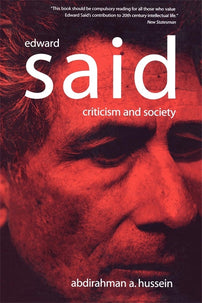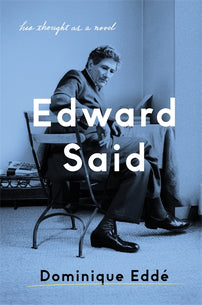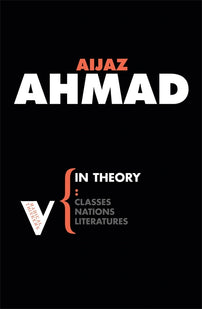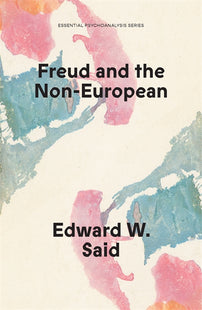A Tale of Two Books
A biographical controversy concerning a new life of Edward Said

In 2019 Verso published Edward Said: His Thought as a Novel by Dominique Eddé. It is an unusual book that weaves together Said’s intellectual development, from literary scholar to Palestinian activist, it discusses Orientalism that Eddé published for Le Seuil in France. Her own close and intimate relationship with Said is not hidden from the reader but nor is it discussed. The book received generally good reviews and that was that. Meanwhile, the distinguished scholar, Timothy Brennan (a former student of Said), had been commissioned by Andrew Wylie [stern janitor of the Said literary estate] to write the official biography with access to all his papers. This is a large biography, mainly intellectual, but with a few personal titbits thrown in. It has received both critical and friendly reviews.
Reviewing it in the London Review of Books on 6 May this year, Adam Shatz produced a lengthy, meticulous and original essay in a class of its own, both critical and appreciative of Said. Pankaj Mishra wrote another in the New Yorker drawing attention to Aijaz Ahmed’s critique of Orientalism in his book In Theory, also published by Verso. Both critics stressed some of the things that had been left out of Brennan’s biography. Shatz also drew attention to the Eddé book, which he had liked:
“Of Said’s personal life, we learn even less. After his second marriage in 1970, other women recede from view, with one exception: his longtime mistress Dominique Eddé, a Lebanese novelist who published a perceptive study of Said’s life and work, Le Roman de sa pensée, in 2017. While echoing several of Eddé’s judgments about Said’s work, Brennan characterises their on and off relationship of more than two decades as a ‘brief affair’ and ridicules her discreet book as the ‘largely autobiographical tell-all’ of a scorned woman who hardly knew the man she professed to love. This ad hominem attack injects a bellicose note into a book that otherwise studiously ignores Said’s private life.’
What makes this uncalled for and misinformed attack on Edde particularly unpleasant is that he expressed the opposite view in an exchange of emails with Eddé who has just made them public. Readers of this blog are intelligent enough to decide which of the two speaks with a forked tongue:
From: "Dominique Edde”
To: "Timothy Brennan"
Sent: Sunday, 28 Mar, 21 At 10:43
Subject: Edward Said
Here is - for comparison - your mail dated 21 february 2017 and a page of your book.
As for the "brief love affair" I won't fall into the trap of your level. Once published, Edward's letters, running from the late seventies to the eve of his death will tell.
To those who are receiving this mail by Cci: you can use the message. It is not confidential.
D
Dear Dominique,
I have finished your Roman de sa pensee and found it both beautifully written and very "on" when it came to capturing Edward's unforgettable person. Your intimate portrait is done with great grace and precision. It is a unique contribution, if a painful one in some respects.
It must have taken courage to write, and I can imagine you hesitated before letting the public in on your relationship -- for many reasons personal and familial.
For the most part, I could not agree more with what you wrote about him, and could never put it as elegantly as you. But I will admit that I find his famous irresolution more strategic than existential, see him less as a disappointed utopian than a frustrated revolutionary, and feel that Gramsci and Lukacs (as well as the much-neglected Hopkins) are as deeply "there" as Conrad -- and much more his unproblematic natural companions. These, a few divergences . . .
Do you know his short story, "An Ark for the Listener"? If not, it is a brilliantly paced showcase for the art of conversation, a reservoir of metaphor, and a window into his political soul. I bring it up just to say that I agree that, in the end, he is his own novel (Tayeb Salih thought so too). But then again, he also wrote fiction (and poetry), and remarkably well. If only we could have seen his novel finished (there were two, and one of them -- an earlier one -- was (you will be happy to know) modeled on Nostromo.
Best wishes,
Tim
[book-strip index="1" style="display"]



